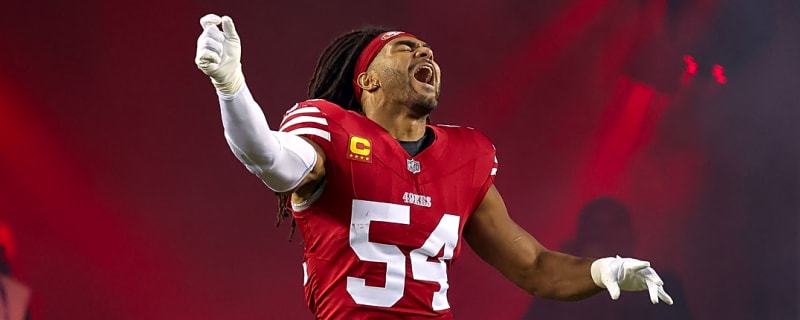Breaking News: Gamefowl Breeder Reveals Top Tips for Raising Champion Birds………
Breaking News: Gamefowl Breeder Reveals Top Tips for Raising Champion Birds………
In the world of competitive cockfighting, the art of raising gamefowl has been honed over centuries. Gamefowl breeders, often regarded as highly skilled and knowledgeable, dedicate years of experience to perfecting the breeding, training, and care of these prized birds. A renowned gamefowl breeder, who has built a legacy in the industry, has now revealed exclusive tips and techniques that have helped him raise champion birds. In this breaking news story, we dive deep into these invaluable insights, offering a closer look at the process that transforms regular gamefowl into high-performance champions.
The Secrets of a Champion Gamefowl
Raising champion gamefowl is not simply about the birds’ genetics. While bloodlines play a critical role, it is the breeder’s attention to detail, dedication, and understanding of a bird’s unique needs that makes all the difference. According to the expert breeder, there are several key elements involved in ensuring a bird’s potential is fully realized.
1. Choosing the Right Bloodline
It all starts with genetics. The breeder emphasizes the importance of selecting high-quality bloodlines. “The foundation of any good gamefowl begins with the right blood,” he says. The bloodline of the bird determines much of its temperament, physical capabilities, and fighting abilities. Breeders typically look for specific characteristics in a bloodline, such as aggressiveness, endurance, and intelligence, all of which are vital for success in the ring.
High-performing gamefowl typically come from families with a long history of success. The breeder advises aspiring breeders to study pedigrees closely and choose birds that have proven themselves in competition.
2. Proper Nutrition and Feeding
Gamefowl are athletes, and like any athlete, their performance depends on the quality of their nutrition. Proper feeding is one of the most crucial aspects of raising healthy, competitive birds. The breeder reveals that his feeding regimen involves a balanced diet of grains, seeds, and high-protein supplements to ensure the birds are strong, healthy, and capable of performing at their best.
In addition to regular meals, hydration is paramount. Gamefowl need to be consistently hydrated to maintain their energy levels, especially when undergoing training or preparing for competition. The breeder also emphasizes the importance of supplements, such as vitamins and minerals, to support muscle growth, feather quality, and overall health.
3. Training and Conditioning
Training gamefowl is as much about discipline as it is about physical conditioning. The breeder highlights the importance of developing a structured training program for gamefowl. Training involves more than just preparing the birds for combat; it is about strengthening their bodies and sharpening their instincts.
One of the key elements of training is the use of exercise routines that simulate the physical demands of a fight. “You want to condition your birds to be both strong and agile,” the breeder explains. This includes using various training techniques such as flight exercises, running, and mock battles with other birds to increase stamina, improve reflexes, and build muscle.
The breeder also mentions the psychological aspect of training. Gamefowl, like athletes, need to be mentally prepared for the stress of competition. Training helps in building confidence, reducing anxiety, and increasing focus, all of which are essential for success in the ring.
4. Health Maintenance and Care
Ensuring the health of gamefowl is another critical aspect of the breeding process. A well-maintained bird is more likely to perform at its peak. The breeder stresses the need for routine health checks, proper vaccinations, and preventative care to ensure that diseases do not hinder the birds’ performance.
Gamefowl are susceptible to various diseases and conditions, and a breeder must stay vigilant in identifying early signs of illness. Regular deworming, parasite control, and a clean living environment are essential. Additionally, maintaining proper grooming practices, such as feather care, foot inspection, and beak trimming, can prevent issues that may affect the bird’s mobility or overall wellbeing.
5. Environmental Factors
While genetics, training, and nutrition are crucial, environmental factors cannot be overlooked. The breeder emphasizes the importance of creating an environment where gamefowl can thrive. Whether housed indoors or outdoors, the living space must be clean, spacious, and free from unnecessary stressors.
Temperature and humidity control are essential in maintaining the birds’ comfort. Gamefowl should not be exposed to extreme conditions that may affect their health or performance. The breeder also recommends providing enough space for the birds to move around freely. Overcrowding can lead to aggression and stress, which can affect their behavior and performance.
6. Breeding and Selection
When it comes to breeding, the expert breeder highlights the significance of careful selection. Not all gamefowl are suitable for breeding, and careful attention must be paid to ensuring that only the best birds are chosen for reproduction. The goal of selective breeding is to enhance specific desirable traits, such as aggression, stamina, and intelligence, while minimizing undesirable characteristics like weakness or unpredictability.
The breeder advises that a thorough understanding of genetics is necessary for successful breeding. Mating two high-performance birds can produce offspring with exceptional traits, but it is also important to monitor and evaluate the success of each mating pair. Over time, consistent breeding with the best birds will improve the overall quality of the flock.
7. Mental Preparation and Focus
Lastly, one of the most underrated aspects of raising a champion gamefowl is mental preparation. In competitive cockfighting, where mental toughness can be the difference between victory and defeat, a breeder must ensure that the birds are psychologically ready for the challenges ahead. This involves acclimatizing the birds to stressful situations, teaching them to stay calm under pressure, and ensuring they have the will to fight when the time comes.
The breeder suggests introducing stress-inducing scenarios during training, such as mock confrontations with other birds or environments that simulate the conditions of a real fight. Over time, this helps build the bird’s resilience, making it less likely to panic during actual competition.
Conclusion
Raising champion gamefowl is a blend of art, science, and dedication. It requires a deep understanding of genetics, careful attention to nutrition, rigorous training, and a commitment to health and wellbeing. The expert breeder’s insights offer a roadmap for those looking to enter the world of gamefowl breeding, providing a wealth of knowledge that can turn an average bird into a true champion.
By following these tips and techniques, aspiring gamefowl breeders can increase their chances of success, ensuring that their birds are not only healthy but also competitive in the ring. As the industry continues to evolve, the importance of careful breeding practices and a focus on holistic care












Post Comment